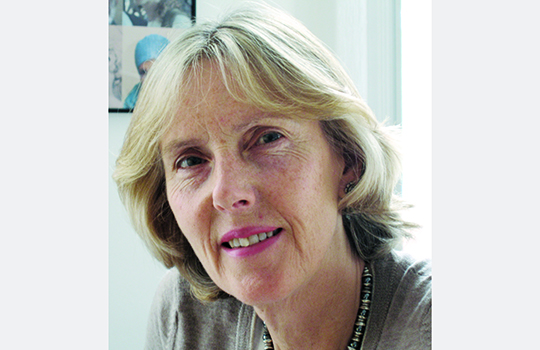Simon Stevens, head of the NHS in England, has warned MPs that delays in releasing older patients from hospital could continue for up to five years because of social care pressures. His comments were immediately reported as a “bed blocking” crisis. The term bed blocking certainly trips off the tongue more easily than “delayed transfers […]
Category: Editors at large
David Payne: Do we still need hospitals (and hospital beds)?
During a conference coffee break last week two physiotherapists pushed a hospital bed through the networking area, along with a wheelie bin overflowing with “redundant” bed-related paraphernalia—monitors, clipboards, etc. The hospital where Shanna Bloemen and Yvonne Geurts work plans to remove beds during the day to encourage patients to get active and get out of […]
Birte Twisselmann: “It is not your fault”: 4.48 Psychosis—the opera
In the same month in which British journalist Sally Brampton died at age 60 after purportedly walking into the sea near her home on England’s south coast after decades of crippling depression, the Royal Opera House staged a new opera by composer Philip Venables at the Lyric Hammersmith. 4.48 Psychosis is based on playwright Sarah […]
David Payne: Matisse, decoupage, and digital health
Are there lessons in the life and work of French artist Henri Matisse that could help regulators navigate the brave new world of digital healthcare? How can the experience of Matisse—who radically and constantly reinvented himself throughout his career—support organisations with responsibility for regulating apps and other innovations, such as the US Food and Drug […]
Zosia Kmietowicz: A charter for women who are pregnant in prison
It is 20 years since a TV documentary showed a British prisoner give birth while handcuffed to a prison guard. Anyone who remembers the images must be asking why a charter for improving the care of pregnant women in prison and their babies has just been launched. Surely this doesn’t happen anymore? According to Birth […]
Tessa Richards: “Burnout shops” are bad for health

Burnout is a pervasive problem. Its high prevalence among health professionals is well recognised. But the extent of its impact on the quality, safety, and cost of patient care needs more scrutiny, agreed participants at the WELL-Med conference in Greece last week. “Fixing toxic workplaces rather than fixing the people” who suffer from working in them […]
Rebecca Coombes: Beware the medicalisation of female genital cutting
I met two remarkable women this week. Actually, I met many such females at the vast Women Deliver conference in Copenhagen—obstetricians, lawyers, midwives, and former presidents (including a possible future one when Hillary Clinton made a live appearance on the big screen). In a cast of thousands, activists Filzah Sumartono, from Singapore, and Mariya Taher, […]
Trish Groves and David Moher: How to get published
In the run up to Evidence Live 2016, we are running a series of blogs by the conference speakers discussing what they will be talking about at the conference. The highlight of last year’s excellent Evidence Live was, for me (Trish Groves), a short, private conversation. Two doctors from Pakistan (a husband and wife) sought […]
Georg Röggla: Health and migration
I attended a remarkable reception with a focus on health and migration at the UK embassy in Vienna last week. The ambassador Susan le Jeune d’Allegeershecque shared her personal experiences of when the wave of refugees reached the eastern Austrian border in 2015. She had seen completely exhausted and traumatised children and a pregnant woman whose waters […]
The BMJ research editors: Why The BMJ rejected a “weekend effect” paper
Recently, perceived shortcomings of The BMJ peer review system have been extensively discussed on Twitter and elsewhere because we rejected a research paper by Rachel Meacock and colleagues examining the “weekend effect.” The paper was ultimately published in The Journal of Health Services Research and Policy. An author of the paper took the unusual step […]